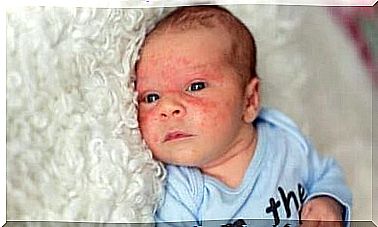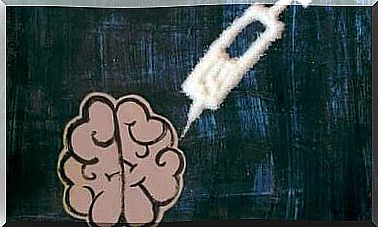The Process Of Diagnosing Dyslexia

It is not as easy to diagnose dyslexia as many people think. In fact, it is a thorough process that deserves all the attention. Health professionals actually like to take their time when determining the presence of this disorder, as it opens up a range of possible treatments and future approaches.
A person’s quality of life with dyslexia depends on two things. First, how early the disorder is detected. Secondly, the support they receive from their surroundings. Multidisciplinary therapies are the key when one wants to incorporate the patient into a normal and social life.
What is dyslexia?
Before one can diagnose dyslexia, it is important that one defines it. In short, it refers to a learning disorder (specifically related to reading and writing) that appears in childhood. It is about the inability to reach certain parameters that are expected for the age of the child.
There is something quite striking about this disorder. Basically, the people who suffer from it usually do not have an associated problem which explains it seen from the outside. In other words, there are no physical or mental changes that determine the presence of a failure in their learning process.
It is difficult for children with dyslexia to identify each letter in the alphabet and distinguish them from each other. The sounds of the words are also quite peculiar to them. They have serious trouble knowing what they are reading, so they replace, replace, and even distort syllables. When they see how difficult it is to shape them to understand texts, reading becomes much slower.
Some authors say that the primary problem lies in the inability to decode the message. Basically, a child with dyslexia has not developed the ability to understand the code that others use to speak. As a result, they are unable to see the proper meaning of the words they use.
Diagnosing dyslexia: Symptoms you should keep an eye on
Diagnosing dyslexia is complicated, as it basically depends on the interpretation that healthcare professionals make. So far, there are no confirmatory tests. For this reason, the person needs to meet specific criteria in order to be able to establish the presence of this disorder. Let’s look at what they are.
Problems reading
This is perhaps the first and most obvious sign. Within dyslexia, the child reads poorly because they use many incorrect methods to arrive at how they understand the meaning of the words.
They swap one letter for another, change syllables, swap words and sounds, and read very slowly. When they have finished reading, they may not know what the text was about. This is because the sounds of the alphabet do not always correspond to a cognitive meaning that they have in their head.

Problems writing
A dyslexic person’s reading problems certainly have an impact on their ability to write. When a dyslexic person tries to write thoughts down, they tend to make many mistakes. For example, they omit letters, change syllables, and do not use (or misuse) punctuation.
These individuals have very poor syntax because they lack the tools to express themselves. A lot of the time, scribbles are the only thing they are able to write down. This undoubtedly shows how difficult it is for some of these individuals to write.
Great intelligence
It is not uncommon for children with dyslexia to attract the teacher’s attention for having such a great intellectual ability within almost anything (except language, of course). There is no mental retardation – in fact, that is far from the case. In many areas, their development is actually within the expected parameters.
Problems doing lexical tasks
The school is the primary place to discover dyslexia. Dyslexic children usually do not do their language tasks correctly. For example, if their teacher asks them to point to capital letters or find words in word search, they are completely lost.
Their problem of putting things in order and sequences sometimes extends to more mathematical and geometric areas as well. However, this does not always happen. For example, when the person’s problem extends in this way, they are not able to learn to multiply or put the days of the week in order.
Changed behavior can be helpful when diagnosing dyslexia
It is normal to suspect dyslexia when children who have problems at school suffer from stress that affects their daily lives. The mere fact that they are lagging behind in the development of their peers can hurt them emotionally.
In addition, behavioral disorders tend to be relativized in educational institutions. Adults often assume that a child’s problem comes as a result of their lack of interest in learning, and vice versa.
Little by little, the dyslexic person is put into a category of bad, slow students that teachers should not waste time on because they do not want to learn anything anyway.
Some patients actually get a diagnosis of depression before a diagnosis of dyslexia. It is safe to say that the time wasted on the wrong diagnosis delays the professional help that they actually need. They may even take medication that is not helpful at all for their condition.

Who is responsible for diagnosing dyslexia?
Since there is no complimentary diagnostic method such as MRI scan or brain scan that can lead to diagnosis, it is very understandable to wonder who is making the diagnosis and how it is done.
Within learning disorders and their approaches, we would say that educational psychologists, speech therapists and neuropsychologists are the specialists trained for this task. Through tests and evaluations, multidisciplinary teams can gather enough criteria to make a conclusion.
Ultimately, the health care team needs to fill out a report that confirms the person’s diagnosis. The next step is for the patient’s family and overall environment to dedicate themselves to adapting the learning to their journey.
In short , do not hesitate to arrange a consultation with the office of psychopedagogy at your local school. As a parent or caregiver, it can completely change a child’s future development if you are diagnosed with dyslexia early.









